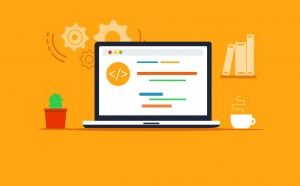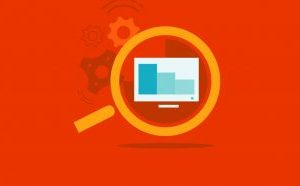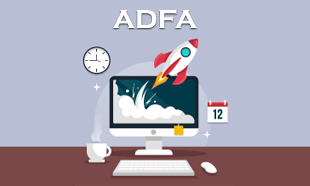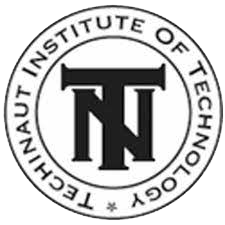ADVANCE DIPLOMA IN FINANCIAL APPLICATION
Techinaut Institute of Technology, Pune, presents an intensive one-year course, the Advanced Diploma in Financial Application (ADFA), tailored to equip students with essential skills in financial management and accounting software. Covering topics ranging from computer basics to advanced Tally ERP functionalities, this comprehensive program prepares students for lucrative careers in finance and accounting. Through hands-on training and real-world simulations, students gain proficiency in MS Office applications, internet fundamentals, e-mail communication, and Tally ERP software, enabling them to excel in the competitive financial landscape.
INTRODUCTION:
In today's dynamic business environment, proficiency in financial management and accounting software is indispensable for individuals aspiring to pursue careers in finance and accounting. Recognizing this demand, Techinaut Institute of Technology, Pune, offers an intensive one-year course, the Advanced Diploma in Financial Application (ADFA). This program is meticulously designed to provide students with a comprehensive understanding of financial concepts and practical skills in using accounting software such as Tally ERP. In this article, we will delve into the curriculum and key components of the ADFA course, highlighting its significance in preparing students for successful careers in the financial industry.
CURRICULUM OVERVIEW:
1. Basic of Computer:
The ADFA course begins with an introduction to the fundamental concepts of computing, including the history and evolution of computers, components of a computer system, input-output devices, and storage devices. Students learn about binary representation, ASCII code, and the basics of computer arithmetic.
2. Computer Appreciation:
This module provides students with an overview of the role of computers in various fields, such as business, education, healthcare, and entertainment. They explore the impact of computer technology on society and the importance of ethical considerations in computing.
3. Computer Organization:
Students delve into the architecture and organization of computers, including CPU, memory, input/output systems, and secondary storage devices. They gain insights into the functioning of a computer system, data representation, and the execution of machine instructions.
4. Operating System:
The course covers the principles and functionalities of operating systems, focusing on popular platforms such as Windows and Linux. Students learn about file management, process management, memory management, and device management, enhancing their ability to navigate and utilize operating systems effectively.
5. MS Word Processing:
In this module, students acquire proficiency in using Microsoft Word, a widely used word-processing software. They learn to create, format, edit, and enhance documents, applying various features such as styles, themes, templates, and mail merge.
6. MS Spreadsheet Package:
Students explore Microsoft Excel, a powerful spreadsheet application, to perform data analysis, calculations, and visualization. They learn to create and format spreadsheets, use formulas and functions, generate charts and graphs, and manage data effectively.
7. MS Presentation Package:
This module focuses on Microsoft PowerPoint, a popular presentation software that enables students to create dynamic and engaging presentations. They learn to design slides, add multimedia elements, apply animations and transitions, and deliver impactful presentations.
8. Introduction to the Internet:
The course introduces students to the fundamentals of the internet, including its history, architecture, protocols, and services. They learn about web browsers, search engines, URLs, hyperlinks, and the concept of web surfing.
9. E-mail:
In this module, students learn to use e-mail effectively for communication and collaboration. They explore e-mail etiquette, composing and sending messages, managing e-mail accounts, organizing folders, and using attachments.
10. Introduction to Tally:
Students are introduced to Tally ERP, a widely used accounting software, and its role in financial management. They learn about the features and functionalities of Tally, including ledger creation, voucher entry, and financial reporting.
11. Administration in Tally:
This module covers advanced Tally features such as user management, security control, backup and restore and data synchronization. Students learn to administer Tally effectively, ensuring data integrity and system reliability.
12. Managing Groups Ledgers and Vouchers:
Students gain proficiency in managing groups, ledgers, and vouchers in Tally ERP. They learn to create and modify ledger accounts, group them for reporting purposes, and record various types of transactions using vouchers.
13. Cost Centres and Cost Categories:
The course covers the concept of cost centres and cost categories in Tally ERP, enabling students to track and allocate expenses to specific cost centres and categories. They learn to analyze cost data and generate reports for cost control and decision-making.
14. Introduction to Budgets:
Students explore the concept of budgets and budgeting in Tally ERP, learning to create, modify, and monitor budgets for various financial activities. They understand the importance of budgeting in financial planning and resource allocation.
15. Introduction to Voucher:
This module provides an in-depth understanding of vouchers in Tally ERP, including their types, purpose, and usage. Students learn to create, modify, and delete vouchers, ensuring accuracy and reliability in financial transactions.
16. Currencies (Multiple Currencies and Foreign Exchange):
Students learn to manage multiple currencies and foreign exchange transactions in Tally ERP. They gain insights into currency conversion, exchange rate management, and handling forex gains and losses.
17. Inventory Information:
The course covers inventory management in Tally ERP, including stock creation, stock groups, units of measure, and stock valuation methods. Students learn to track inventory levels, monitor stock movements, and generate inventory reports.
18. Voucher Entry:
This module covers advanced Tally features such as user management, security control, backup and restore and data synchronization. Students learn to administer Tally effectively, ensuring data integrity and system reliability.
19. Displaying Information from Tally:
This module explores the various methods of displaying and retrieving information from Tally ERP. Students learn to generate reports, view ledger balances, analyze financial statements, and extract data for decision-making.
20. Introduction to Taxation:
Students are introduced to taxation concepts and their implementation in Tally ERP. They learn about different types of taxes, tax calculation methods, tax compliance requirements, and tax reporting in Tally.
21. Introduction to Payroll:
The course covers payroll management in Tally ERP, including employee master creation, salary processing, attendance tracking, and payroll accounting. Students learn to generate payroll reports and comply with statutory requirements related to payroll processing.
CONCLUSION:
The Advanced Diploma in Financial Application (ADFA) offered by Techinaut Institute of Technology, Pune, is a comprehensive program designed to equip students with essential skills in financial management and accounting software. By covering topics such as computer basics, MS Office applications, internet fundamentals, e-mail communication, and Tally ERP functionalities, the ADFA course prepares students for lucrative careers in the financial industry. With a focus on practical learning and real-world simulations, graduates of the ADFA program are well-equipped to meet the demands of the dynamic and competitive financial landscape.
 DIPLOMA IN FINANCIAL APPLICATION (SRKI)
1 × ₹10,000.00
DIPLOMA IN FINANCIAL APPLICATION (SRKI)
1 × ₹10,000.00  POST GRADUATE DIPLOMA IN COMPUTER APPLICATION (I-TEL)
1 × ₹22,000.00
POST GRADUATE DIPLOMA IN COMPUTER APPLICATION (I-TEL)
1 × ₹22,000.00  ADVANCE DIPLOMA IN COMPUTER APPLICATION (TITP)
1 × ₹10,000.00
ADVANCE DIPLOMA IN COMPUTER APPLICATION (TITP)
1 × ₹10,000.00  ADVANCE EXCEL (CDCO)
1 × ₹13,000.00
ADVANCE EXCEL (CDCO)
1 × ₹13,000.00  Marketing Package
1 × ₹19.00
Marketing Package
1 × ₹19.00  DIPLOMA IN COMPUTER APPLICATION (SRKI)
1 × ₹10,000.00
DIPLOMA IN COMPUTER APPLICATION (SRKI)
1 × ₹10,000.00  ADVANCE DIPLOMA IN COMPUTER APPLICATION (COSO)
2 × ₹10,000.00
ADVANCE DIPLOMA IN COMPUTER APPLICATION (COSO)
2 × ₹10,000.00  COMPUTER TYPING (SRKI)
1 × ₹10,000.00
COMPUTER TYPING (SRKI)
1 × ₹10,000.00  TALLY EIOC
1 × ₹4,000.00
TALLY EIOC
1 × ₹4,000.00  COMPUTER TYPING (CDCO)
1 × ₹10,000.00
COMPUTER TYPING (CDCO)
1 × ₹10,000.00  ADVANCE DIPLOMA IN COMPUTER APPLICATION (GCEC)
1 × ₹13,000.00
ADVANCE DIPLOMA IN COMPUTER APPLICATION (GCEC)
1 × ₹13,000.00  POST GRADUATE DIPLOMA IN COMPUTER APPLICATION (ICSC)
1 × ₹22,000.00
POST GRADUATE DIPLOMA IN COMPUTER APPLICATION (ICSC)
1 × ₹22,000.00  POST GRADUATE DIPLOMA IN COMPUTER APPLICATION ACIT
1 × ₹4,000.00
POST GRADUATE DIPLOMA IN COMPUTER APPLICATION ACIT
1 × ₹4,000.00  INTERNET (GYAN)
1 × ₹22,500.00
INTERNET (GYAN)
1 × ₹22,500.00 

